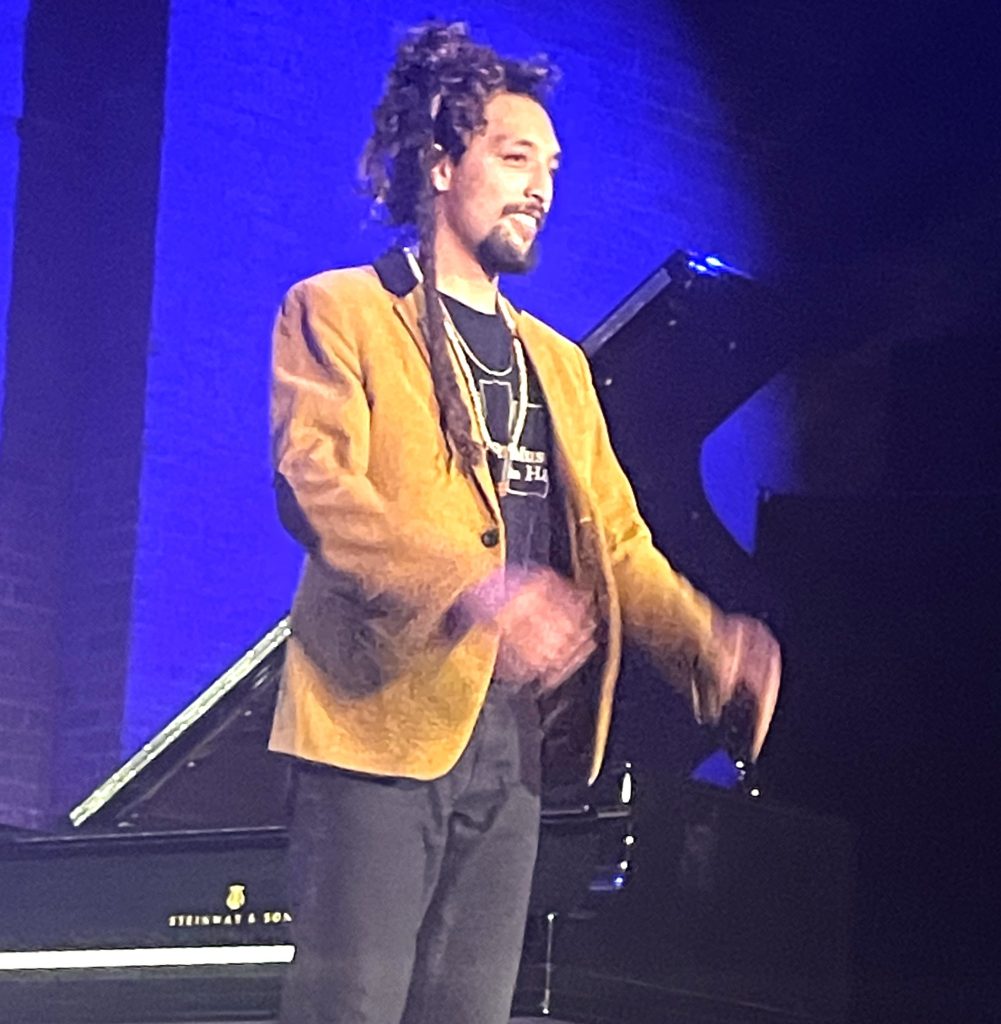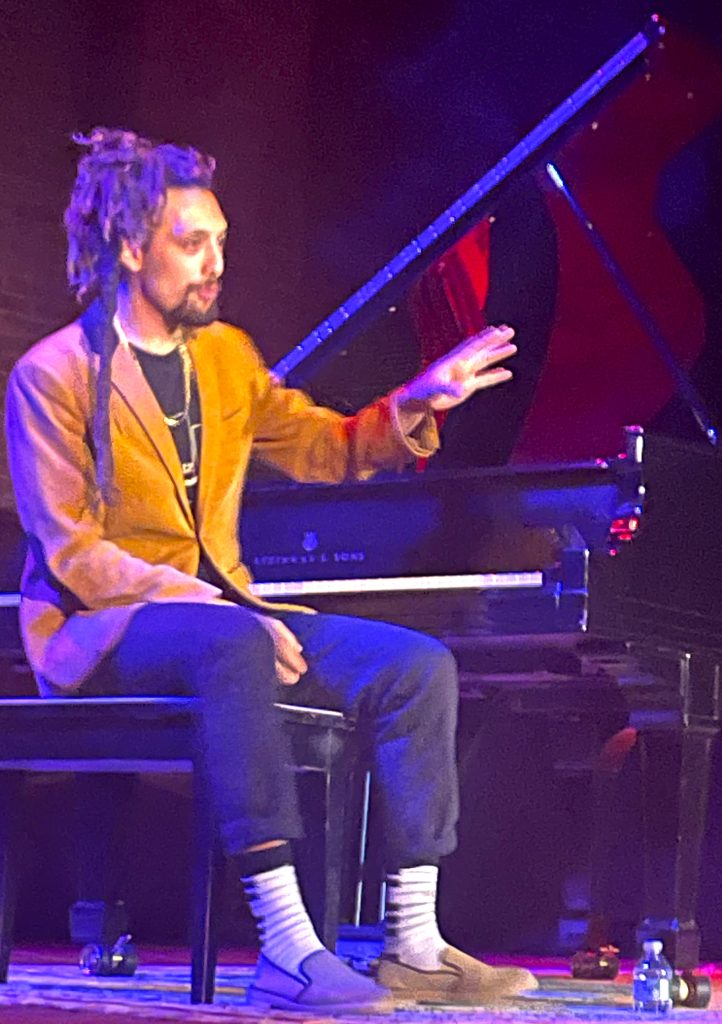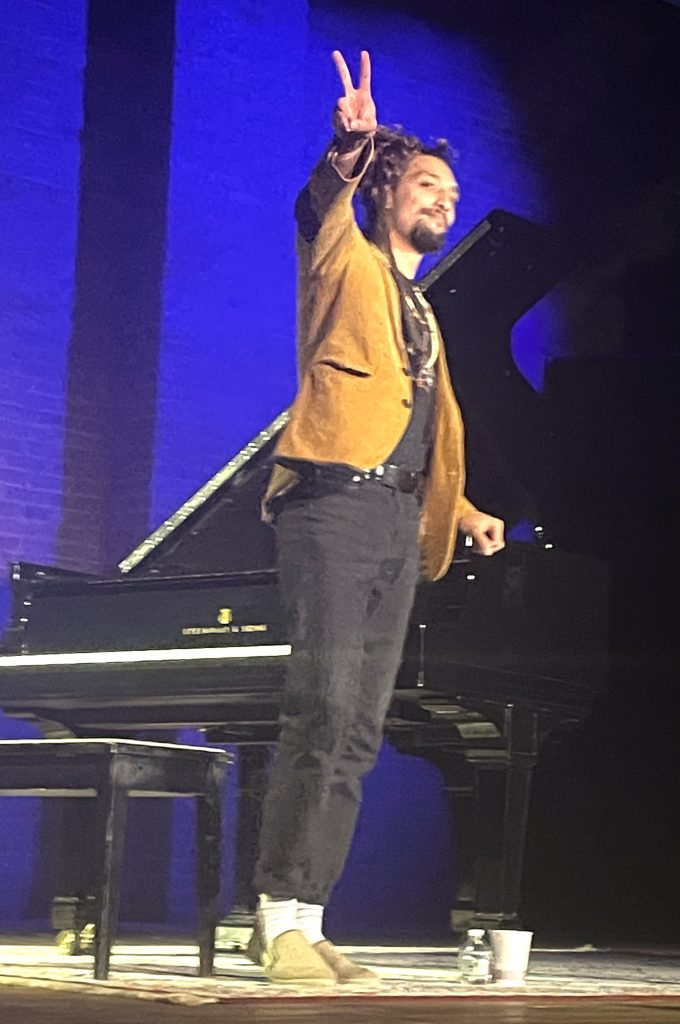
by Kevin T McEneaney
Friday night The Stissing Center (in Pine Plains) featured pianist Mathis Picard (born in France and fluently bi-lingual), who now resides on the Upper West Side of Manhattan. He opened with Blues artist Erroll Garner’s (1921-77) noted Penthouse Serenade, the title of Garner’s first recorded album (1945), which launched his long international career. (Back then only poor people lived in penthouses.) I found Picard’s interpretation slightly flashy, with an accelerated tempo that displayed his finesse at rapid fingering, yet that was my only criticism of the night as I fell under his spell, especially enjoying the wonder of his original compositions; his sixth album The Royal Room (Live in Seattle) has recently been released and applauded by a chorus of critics.
Any accomplished pianist remains fascinated by J.S. Bach. Picard has embarked on a project to compose both Preludes and Fugues. “Mysticism for Money,” Picard’s first Prelude premiered on NPR Live Sessions Radio earlier this year. He recalls “hearing the preludes and fugues of Beethoven, Bach, Scriabin, Rachmaninoff, Ravel & Debussy in the corridors of Chetham’s School of Music (Manchester) where I studied in England as a teenager.” This Prelude offered trenchant satire (with a flash of humor) on the frantic rat race for money in North American business culture. (As Picard said, Preludes tell a little story.)
Picard gave no title for his second Prelude which I fell completely in love with. This composition was deeply meditative, probing, reflecting on the vicissitudes of life. These mellow notes still linger with echoing pleasure in my ears!
Picard’s long first Fugue appears to be a mediation on Bach, the man, as well as the artist. Here melodies playfully switched from on either side of the piano as harmonies mediated with clear resonance.

He played a medley of Chopin pieces, stringing them together like beads on a necklace. What a necklace! I have never heard Fryderyk Chopin performed with such deep drama and elegant Romantic éclat.
“Fast and Furious” was as advertised. This appeared to be the autobiographical arc of a young child’s delighted discovery of the piano, the teenage struggle to master difficult finger gymnastics, and then a contagious celebration of mastering the piano while injecting a playful sense of humor full of infectious delight. The ghost of Eric Satie lingered in the background.
“Empires Fall” offered a seasonal portrait of cultural dynamics: cultures are born, grow successful, become corrupt and ambitious, collapse, and then begin to grow once more with a happy sense of aspiration. This Spenglerian syndrome was bracketed with the joy of domestic charm since innocence and wonder are the engines of civilization.

For the Finale Picard played a composition he wrote in Italy: ci vediamo (“See you”), that is, goodbye. This was a playful avant-garde work that began with rhythmic knocking at various spots on the Steinway which reminded me of John Cage’s playful semi-anarchy. The knocking was succeeded by plucking strings inside the piano, some harp-like sounds alluding to Chinese traditional music, then timidly addressing the keyboard, then plucking the internal strings again, then addressing the keyboard which lingered in lyricism before it exploded into a chorus-like rushing river of sound!
At the age of twenty-two, Picard is a volcano of multiple, mature, inventive vectors. He possesses an open chatty ambiance with an audience as if you were at a private party. Picard resembles a lion tamer who performs ingenious tricks with his best friend, the historic legacy of keyboard music, skillful mixing of various cultural traditions into a contemporaneous hybrid artifact, as well as the playful invention of a child who has mastered a panorama of present possibilities that will orbit into the future! If you get a chance to hear him, don’t miss the gifted, liquid, dexterity of his genius….
P.S. Visit his lively interactive website!
